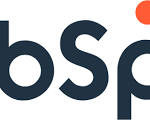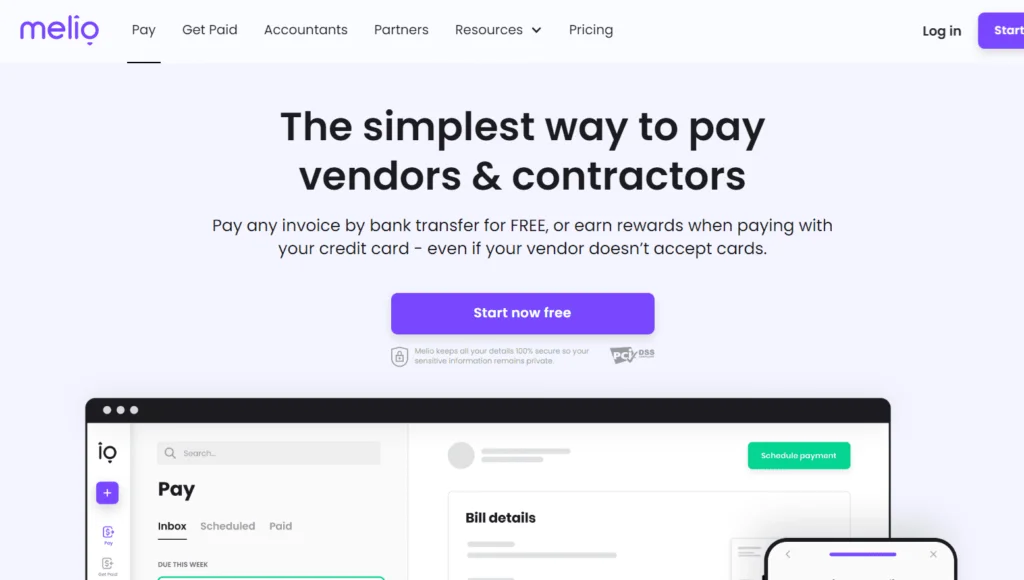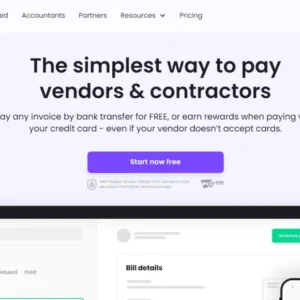Table of Contents
Introduction:
In today’s digital age, Customer Relationship Management (CRM) software plays a crucial role in helping businesses manage interactions with their customers and prospects effectively. With a plethora of options available in the market, choosing the right CRM software can be a daunting task. In this guide, we’ll explore the top CRM software solutions for 2024, highlighting their features, pricing, pros, and cons, to help you make an informed decision for your business.
Features of CRM Software:
- Contact Management: Efficiently organize and manage customer and prospect contact information, including names, addresses, phone numbers, emails, and social media profiles.
- Sales Automation: Automate repetitive sales tasks such as lead scoring, email tracking, and pipeline management to streamline the sales process and improve efficiency.
- Marketing Automation: Create and automate marketing campaigns, including email marketing, social media marketing, and lead nurturing, to engage and convert leads into customers.
- Customer Support: Provide exceptional customer support by tracking and managing customer inquiries, complaints, and feedback through multiple channels like email, phone, and chat.
- Analytics and Reporting: Generate insightful reports and analytics to track sales performance, customer behavior, and campaign effectiveness, enabling data-driven decision-making.
- Integration Capabilities: Seamlessly integrate with other business tools and platforms such as email marketing software, accounting software, and e-commerce platforms for enhanced functionality.
- Customization Options: Customize the CRM software to meet the specific needs and requirements of your business, including custom fields, workflows, and dashboards.
- Mobile Accessibility: Access the CRM software from anywhere, anytime, using mobile apps or responsive web interfaces, ensuring flexibility and convenience for users on the go.
Top CRM Software for 2024:
1. Salesforce

Salesforce is a cloud-based CRM software company that offers a wide range of solutions for sales, marketing, and customer service. It is known for its robust features, extensive integrations, and scalability, making it suitable for businesses of all sizes, from small startups to large enterprises.
- Pricing: Starts at $25/user/month
- Pros: Robust features, extensive integrations, scalable for businesses of all sizes
- Cons: Steep learning curve, can be expensive for small businesses
- Best Suited for: Large enterprises with complex CRM needs
Website: Salesforce.com
2. HubSpot CRM

HubSpot CRM provides a user-friendly interface and seamless integration with HubSpot’s marketing and sales tools. It offers basic CRM functionalities for free, with additional paid add-ons available for more advanced features.
- Pricing: Free, with paid add-ons available
- Pros: User-friendly interface, seamless integration with HubSpot’s marketing and sales tools
- Cons: Limited customization options, basic reporting features
- Best Suited for: Small to medium-sized businesses looking for an all-in-one CRM solution
Website: HubSpot.com
3. Zoho CRM

Zoho CRM offers affordable pricing and extensive customization options. It includes an AI-powered sales assistant and provides solutions for sales, marketing, and customer support.
- Pricing: Starts at $12/user/month
- Pros: Affordable pricing, extensive customization options, AI-powered sales assistant
- Cons: Limited automation features in lower-tier plans, customer support can be slow
- Best Suited for: Small to mid-sized businesses with budget constraints
Website: Zoho.com
4. Microsoft Dynamics 365

Microsoft Dynamics 365 seamlessly integrates with Microsoft Office 365 and offers robust analytics and reporting features. It is suitable for enterprises already using Microsoft products and services.
- Pricing: Starts at $50/user/month
- Pros: Seamless integration with Microsoft Office 365, robust analytics and reporting features
- Cons: Complex setup process, high pricing compared to competitors
- Best Suited for: Enterprises already using Microsoft products and services
Website: Microsoft.com
5. Freshworks CRM

Freshworks CRM provides an intuitive interface, AI-powered lead scoring, and customizable workflows. It caters to small to medium-sized businesses in need of a user-friendly CRM solution.
- Pricing: Starts at $29/user/month
- Pros: Intuitive interface, AI-powered lead scoring, customizable workflows
- Cons: Limited third-party integrations, mobile app needs improvement
- Best Suited for: Small to medium-sized businesses in need of a user-friendly CRM solution
Website: Freshworks.com
6. Pipedrive

Pipedrive offers an intuitive interface and customizable pipeline management for sales-focused teams. It is known for its visual and easy-to-use CRM solution.
- Pricing: Starts at $12.50/user/month
- Pros: Intuitive interface, customizable pipeline management, extensive sales reporting
- Cons: Limited marketing automation features, may require additional integrations for full functionality
- Best Suited for: Sales-focused teams in need of a visual and easy-to-use CRM solution
Website: Pipedrive.com
7. SugarCRM

SugarCRM is highly customizable and offers robust customer service and support features. It provides open-source options for businesses seeking extensive customization and flexibility.
- Pricing: Starts at $40/user/month
- Pros: Highly customizable, robust customer service and support features, open-source options available
- Cons: Steeper learning curve, higher pricing compared to competitors
- Best Suited for: Businesses seeking extensive customization and flexibility in their CRM solution
Website: Sugarcrm.com
8. Zendesk Sell (formerly Base CRM)

Zendesk Sell offers a user-friendly interface and built-in calling and email features. It is suitable for small to medium-sized sales teams looking for a simple and straightforward CRM solution.
- Pricing: Starts at $19/user/month
- Pros: User-friendly interface, built-in calling and email features, sales forecasting tools
- Cons: Limited customization options, integration capabilities can be improved
- Best Suited for: Small to medium-sized sales teams looking for a simple and straightforward CRM solution
Website: Zendesk.com
9. Monday.com

Monday.com is a versatile platform for project management and CRM, offering customizable workflows and visual dashboards. It is suitable for businesses looking for integrated project management and CRM functionality.
- Pricing: Starts at $8/user/month
- Pros: Versatile platform for project management and CRM, customizable workflows, visual dashboards
- Cons: Not specifically designed as a CRM tool, may lack some advanced CRM features
- Best Suited for: Businesses looking for a CRM solution integrated with project management and collaboration tools
Website: Monday.com
10. Insightly

Insightly provides affordable pricing and project management and CRM capabilities in one platform. It is ideal for small to medium-sized businesses in need of integrated project management and CRM functionality.
- Pricing: Starts at $29/user/month
- Pros: Affordable pricing, project management and CRM capabilities in one platform, robust reporting features
- Cons: Limited customization options, may not be suitable for larger enterprises
- Best Suited for: Small to medium-sized businesses in need of integrated project management and CRM functionality
Website: Insightly.com
Conclusion:
With the diverse range of CRM software options available in 2024, businesses have choices to find a solution that best fits their needs and budget. Whether you prioritize ease of use, customization, or integration with other tools, there’s a CRM software out there to help you streamline your customer relationship management processes and drive growth. Evaluate the features, pricing, and pros and cons of each CRM software mentioned in this guide to make an informed decision for your business’s CRM needs.
Top 5 FAQ for CRM Software
What is CRM software, and how does it benefit my business?
CRM software helps businesses manage customer interactions and data to improve relationships and drive sales. Benefits include enhanced customer satisfaction, increased sales, better marketing targeting, and streamlined processes.
What features should I look for in a CRM software?
Look for features like contact and lead management, sales pipeline tracking, email integration, reporting and analytics, task management, customization options, and integration capabilities with other tools
How do I choose the right CRM software for my business?
Consider factors such as business size, industry, specific needs, ease of use, scalability, pricing, customer support, integration capabilities, and user reviews to choose the right CRM software.
What are the common challenges in implementing CRM software?
Challenges include employee resistance, data migration issues, lack of user adoption, training needs, poor data quality, integration problems, and selecting the wrong CRM solution.
How can I measure the success of my CRM implementation?
Success metrics include increased sales revenue, improved customer satisfaction, higher conversion rates, reduced churn, faster sales cycles, better lead generation, improved marketing ROI, and increased productivity
Melio Review 2025: The Easiest Way to Pay and Get
What is Melio?Key Features of Melio1. Pay by Credit Card — Even if Vendors Don’t Accept Cards2. No Subscription Fees3….
Omnisend Review: The Ultimate Ecommerce Email & SMS Marketing Tool
Omnisend is a powerful email and SMS marketing tool built for ecommerce brands. In this review, we break down its…

Klaviyo Review 2025: The Ultimate Email & SMS Marketing Platform
Why Email Marketing Still Dominates in 2025What is Klaviyo?Key Features of Klaviyo1. Deep Ecommerce Integrations2. Advanced Segmentation3. Prebuilt Automation Flows4….

Why Liquid Web’s Dedicated Servers and Cloud VPS Hosting Are
The Liquid Web Difference: Why They Stand Out1. 100% Uptime Guarantee2. Heroic Support®3. Enterprise-Grade Infrastructure4. Full Customization and Control5. Security…

Why ClickUp is Exploding in 2025 — And Why You
The Rise of the “Everything App” — And Why ClickUp Is WinningSo… What Exactly Is ClickUp?What Makes ClickUp So Addictive…

Why FBA Reimbursements Still Matter in 2025—and How Getida Closes
Published on wpdailylive The High Stakes of FBA Errors1. Lost or Missing Inventory2. Damaged Inventory3. Customer Returns Gone Wrong4. Fee Overcharges5….
Melio Review 2025: The Easiest Way to Pay and Get
What is Melio?Key Features of Melio1. Pay by Credit Card — Even if Vendors Don’t Accept Cards2. No Subscription Fees3….
Omnisend Review: The Ultimate Ecommerce Email & SMS Marketing Tool
Omnisend is a powerful email and SMS marketing tool built for ecommerce brands. In this review, we break down its…

Klaviyo Review 2025: The Ultimate Email & SMS Marketing Platform
Why Email Marketing Still Dominates in 2025What is Klaviyo?Key Features of Klaviyo1. Deep Ecommerce Integrations2. Advanced Segmentation3. Prebuilt Automation Flows4….

Why Liquid Web’s Dedicated Servers and Cloud VPS Hosting Are
The Liquid Web Difference: Why They Stand Out1. 100% Uptime Guarantee2. Heroic Support®3. Enterprise-Grade Infrastructure4. Full Customization and Control5. Security…

Why ClickUp is Exploding in 2025 — And Why You
The Rise of the “Everything App” — And Why ClickUp Is WinningSo… What Exactly Is ClickUp?What Makes ClickUp So Addictive…

Why FBA Reimbursements Still Matter in 2025—and How Getida Closes
Published on wpdailylive The High Stakes of FBA Errors1. Lost or Missing Inventory2. Damaged Inventory3. Customer Returns Gone Wrong4. Fee Overcharges5….










